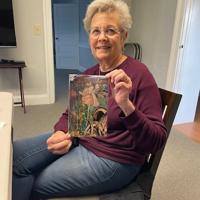Soul Sanctuary: Local Church Unveils Holistic Self-Care Toolkit for Community Wellness

When Trinity Presbyterian Church in Harrisonburg received an invitation to participate in Louisville Seminary's Myrtle Project, a unique opportunity funded by the Lilly Foundation, church leaders were challenged to develop an innovative proposal that would capture the spirit of the initiative. The project presented a chance for the congregation to explore new approaches to ministry and community engagement.
The church's leadership team carefully considered how they might craft a proposal that would not only meet the project's requirements but also meaningfully impact their local community. This opportunity represented more than just a funding initiative; it was a potential catalyst for transformative church programming and outreach.
As they began to brainstorm and strategize, the members of Trinity Presbyterian Church recognized the significance of this moment—a chance to reimagine their church's role and potential in serving the broader Harrisonburg community through creative and purposeful ministry approaches.
